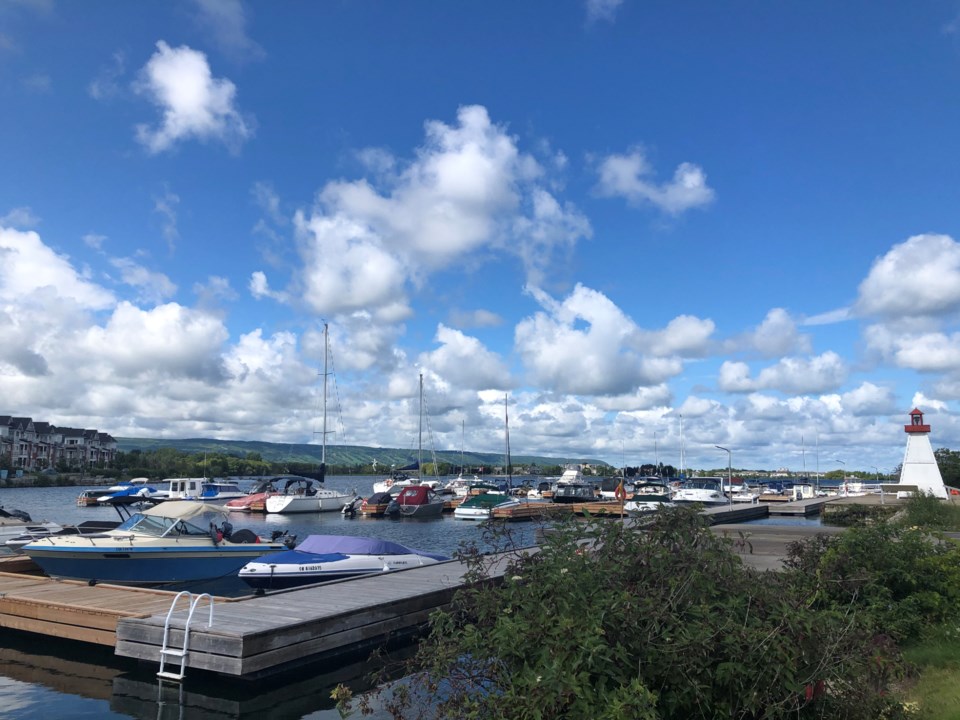If all goes according to plan, there should be smoother sailing in Collingwood Harbour this summer.
During Monday’s (Feb 7) corporate and community services standing committee meeting, harbour master and director of parks, recreation and culture Dean Collver provided an update to councillors on the town’s process to apply for a Vessel Operation Restriction Regulations (VORR), a federal tool that would be used to help enforce no-wake rules in Collingwood Harbour.
“The harbour has become incredibly busy, both with the growth of the town and the people finding new avenues for outdoor recreation,” said Collver on Monday. “In my time here, we’ve always had conflicts between boater traffic and non-motorized traffic. As volumes increase, we need to establish more stringent enforcement.”
The issue of no-wake rules came to a head during the pandemic, as in 2020 and 2021, the volume of people arriving at Collingwood’s harbour increased significantly, which is likely attributable to COVID-19, Collver told CollingwoodToday.ca last summer. The increase in harbour visitors led to more complaints about people disregarding the no-wake rule, leading the town to look harder at its bylaws.
What they found was, without the authority conferred by a successful VORR application, the municipality’s bylaws referring to the movement of vessels over water, were not enforceable by the OPP or the town’s bylaw department.
SEE MORE: Wave of harbour visitors have towns looking to feds for tougher rules
According to Transport Canada, in Ontario, there is a universal shoreline speed restriction of 10 kilometres/hour within 30 metres of shore, with certain exceptions, to prevent wake.
As an interim solution last summer, the town had buoys in the water denoting a swimming area and an alert to the wake rules.
At that time, Collver said that long-term conversations were ongoing between the town and Transport Canada to create a VORR that would aid in stronger OPP enforcement of wake rules.
Transport Canada is officially the oversight body for waterways across Canada.
A VORR allows any level of government to ask the federal government to restrict the use of either pleasure craft or commercial vessels on all bodies of water in Canada. Local authorities must submit a formal submission to Transport Canada under these regulations and, according to Transport Canada, they should only be used as a last resort.
If Collingwood is able to establish a VORR, Collver said the town would be better poised to impose specific limitations in the harbour to control traffic.
“It’s basically a public safety measure,” he said.
Collver said the goal is for Collingwood to have a VORR by May 2022, so it could be in place in time for this summer’s boating season.
Mayor Brian Saunderson asked how the town would be formulating the rules for Collingwood Harbour, and if guidance is provided as part of the Canada Shipping Act.
“This is actually the beginning of a process that requires public consultation,” said Collver. “We will be asking members of the community what regulations would fit best with the local uses and environment.”
Coun. Mariane McLeod asked if council would see the submission before it goes into effect.
Collver said that while it wasn’t a requirement of the process, he would be willing to provide an update to council, but it could prolong the timing. McLeod clarified she wouldn’t be looking for staff to ask for council approval, but would instead prefer a final update as information.
On Monday afternoon, the committee voted unanimously in favour of receiving the report and endorsing staff proceeding to establish a VORR that will support enforceable rules for use of the Collingwood Harbour.
